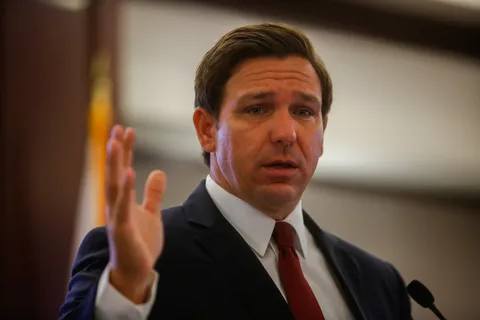The journey aboard Turkey’s Eastern Express, also known as the Dogu Express, offers travelers a unique and immersive experience through the country’s lesser-explored eastern regions. From breathtaking landscapes to cultural treasures, this 30-hour train ride has become a sought-after adventure for both locals and international travelers alike.
A Historic Commuter Route Transformed
Initially established as a commuter train from Ankara to Kars, the Eastern Express has evolved into a popular tourist route, attracting attention from Turkish influencers and travelers seeking off-the-beaten-path destinations. In response to growing demand, the train was reimagined as a scenic journey through Turkey’s eastern provinces, offering passengers an opportunity to explore the region’s hidden gems.
Challenges of Ticket Availability
Despite its popularity, securing tickets for the Dogu Express can be a challenging task. Tickets often sell out within minutes of becoming available, requiring travelers to be vigilant and strategic in their booking approach. Travel agencies play a significant role in ticket distribution, purchasing large quantities for organized tours and leaving limited options for individual travelers.
Dogu Express Departs from Ankara
The journey commences in Ankara, Turkey’s bustling capital, where passengers have the opportunity to explore the city’s rich history and cultural heritage. From the Ataturk Mausoleum to the historic Ulus quarter, Ankara offers a blend of ancient charm and modern sophistication, providing a fitting starting point for the adventure ahead.
Spectacular Scenery and Cozy Cabins
As the train departs from Ankara, passengers are treated to panoramic views of Turkey’s diverse landscapes, from sprawling metropolises to vast expanses of untouched wilderness. Sleeper cabins provide a cozy retreat for travelers, offering comfortable accommodations and opportunities for personalization with decorations and personal touches.
Highlights Along the Route
The journey includes strategic stops at picturesque destinations along the route, where passengers can participate in organized excursions and explore the surrounding landscapes. From the breathtaking Dark Canyon near Ilic to the historic city of Erzurum, each stop offers unique attractions and cultural experiences.
Arrival in Kars: A Winter Wonderland
The final destination of the Eastern Express is Kars, renowned for its enchanting winter scenery and distinctive architecture influenced by its history as part of the Russian Empire. Visitors to Kars can immerse themselves in the city’s rich cultural heritage, sample local cuisine, and explore nearby attractions such as the ancient city of Ani.
Embracing Eastern Turkey
Travelers often remark on the contrast between Turkey’s eastern and western regions, with the east offering a glimpse into a different cultural landscape shaped by diverse ethnic groups and historical influences. Despite receiving fewer tourists, the east of Turkey welcomes visitors with warmth and hospitality, inviting them to discover its hidden treasures and unique charm.
The allure of the Eastern Express lies not only in its scenic route but also in the opportunity it provides to explore lesser-known parts of Turkey. Travelers aboard the train are greeted with vistas of rolling hills, snow-capped mountains, and quaint villages, offering a glimpse into the natural beauty and cultural richness of the country’s eastern provinces.
Cultural Encounters and Historical Landmarks
One of the highlights of the Eastern Express journey is the chance to encounter diverse cultures and explore historical landmarks along the route. From the medieval city of Ani to the ancient ruins scattered throughout the region, passengers are transported back in time as they uncover the stories and legacies of civilizations that once thrived in these lands.
Hospitality and Warmth of the East
Travelers often speak fondly of the hospitality they encounter in Turkey’s eastern regions. Local residents welcome visitors with open arms, eager to share their traditions, cuisine, and way of life. Whether sampling traditional dishes like Cag Kebab or engaging in conversations with locals, passengers aboard the Eastern Express are immersed in the warmth and generosity of the region’s people.
A Journey Beyond Tourism
The Eastern Express journey transcends traditional tourism, offering passengers a deeper connection to the land and its inhabitants. As the train winds its way through remote villages and stunning landscapes, travelers gain a newfound appreciation for the beauty and diversity of Turkey’s eastern provinces. Each stop along the route provides an opportunity to engage with local communities, fostering cultural exchange and mutual understanding.
Preserving the Legacy of the Eastern Express
While the Eastern Express has gained popularity in recent years, it remains a cherished symbol of Turkey’s railway heritage. The journey serves as a reminder of the importance of preserving and celebrating the country’s cultural and historical landmarks. Through initiatives to promote sustainable tourism and protect natural resources, efforts are underway to ensure that future generations can continue to experience the magic of the Eastern Express.
Inspiring Future Adventures
For many travelers, the Eastern Express journey is just the beginning of a lifelong love affair with Turkey’s eastern regions. The sights, sounds, and experiences encountered along the route leave a lasting impression, inspiring future adventures and explorations. Whether revisiting favorite destinations or venturing off the beaten path, passengers aboard the Eastern Express carry with them memories of an unforgettable journey through one of the world’s most captivating landscapes.
Conclusion: The Journey Continues
As the Eastern Express completes its 30-hour odyssey through Turkey’s eastern provinces, passengers disembark with a renewed sense of wonder and appreciation for the beauty of the region. From the majestic mountains of Erzurum to the ancient ruins of Ani, each moment spent aboard the train is a testament to the rich history and cultural diversity of Turkey’s eastern regions. As travelers bid farewell to the Eastern Express, they carry with them memories of an extraordinary journey and the promise of future adventures yet to come.
The Eastern Express journey encapsulates the spirit of adventure and exploration, offering travelers a once-in-a-lifetime opportunity to discover the beauty and diversity of Turkey’s eastern regions. From stunning landscapes to cultural landmarks, this epic train ride promises an unforgettable experience for those willing to embark on the journey. As travelers reflect on their time aboard the Eastern Express, they leave with memories of breathtaking scenery, cultural encounters, and the warmth of Turkish hospitality, inspiring future adventures and discoveries.























